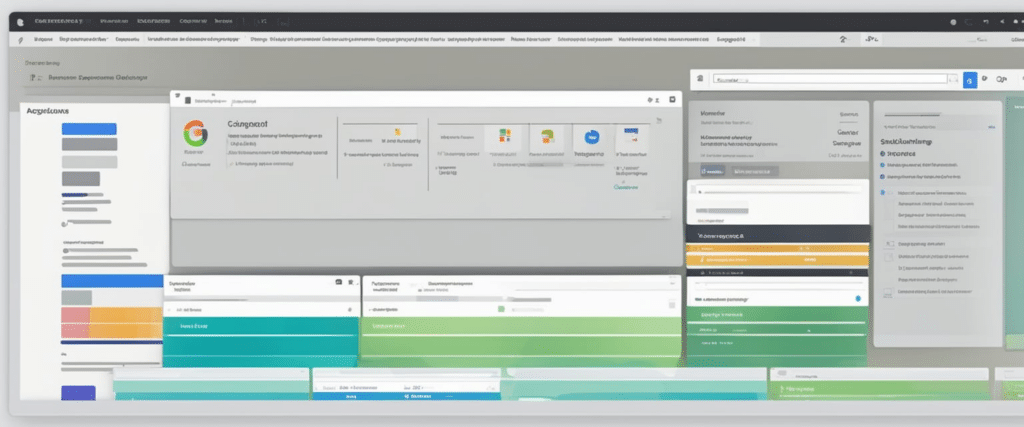Locating someone’s workplace may seem challenging, but it is certainly achievable. Whether you are trying to reconnect with an old friend or simply curious about your ex-partner’s employment status, there are several effective methods to find out where someone works. In this article, we will explore some tried-and-true solutions that can assist you in uncovering How To Find Out Where Someone Works.

If you’re curious about someone’s workplace, a quick search on popular social media platforms like LinkedIn, Facebook, or Twitter can often provide helpful insights. By simply using the person’s name as a search query on these platforms, you may find their employment details listed on their profile or within their network connections.
However, it’s important to note that not everyone includes their work information on social media and some individuals have strict privacy settings in place.
To find out where someone works, you can utilize people search websites like True People Search or TruthFinder. These platforms enable you to search for an individual’s name, phone number, or address and provide public information on their employment history and current employer. However, do note that some of these websites may require a fee for access to their services, and the accuracy of the information they provide could vary.
Understanding the Basics

If you’re trying to discover someone’s workplace, there are a few simple steps you can follow. One of the most common and straightforward methods is conducting an online search. Through searching online, you can often uncover details about a person’s past employment, current job, and additional pertinent information.
To begin your search, utilize popular search engines like Google. Enter the person’s name, along with any additional pertinent information like their location or place of residence. Additionally, social media platforms such as LinkedIn and Facebook can be valuable resources in locating the individual’s profile and potentially discovering their current employer.
You can also consider using a professional people search tool. These services offer comprehensive information about a person’s employment history, including details about their past and current employers, job titles, and more. Some well-known people search tools include TruthFinder and Kiwi Searches.
It’s crucial to keep in mind that not all information found online is reliable or current. It’s essential to corroborate any information from multiple sources before considering it accurate.
There are instances where you might need to access government employer databases in order to gather information about a person’s present or previous employment. This can prove beneficial, particularly if you’re seeking to find someone for legal or financial purposes, such as wage garnishment or collections.
In general, performing an online search is usually the simplest and most efficient method of discovering someone’s place of employment. By utilizing appropriate tools and cross-checking information from multiple sources, you can obtain a more comprehensive understanding of their work history and current employment status.

If you’re curious about someone’s workplace, social media can be an invaluable resource. Here are some helpful tips on how to effectively utilize various social media platforms to gather information about where someone is employed.
Facebook is a widely used social media platform and can be a useful tool for finding someone’s employment information. If you have the person’s name, simply search for them on Facebook and view their profile. Many individuals include their current or past employment details in their profile. Furthermore, you can check the “About” section of their profile to see if they have specifically listed their employer.
LinkedIn is a social media platform that caters specifically to professionals, making it a valuable resource for discovering someone’s current place of employment. If you know the person’s name, you can search for them on LinkedIn and view their profile. Many individuals include their current or previous job information in their profiles. Moreover, you can check their “Experience” section to see if they have listed the employer details there.
If you have someone’s username, Twitter can be a helpful platform for discovering their workplace. Although individuals may not directly mention their employer on their profile, they might tweet about their job or share industry-related articles, offering insights into where they work.
Instagram is widely used for sharing photos and videos, but it can also provide insights into someone’s work. By searching for a person’s username on Instagram and viewing their profile, you may discover information about where they work. While individuals may not explicitly mention their employer on their Instagram profile, they might share images from their workplace or tag their employer in posts.
Snapchat
Snapchat is a social media platform where users can share photos and videos that vanish after a short period. Although it may not be the first platform that comes to mind for finding someone’s workplace, it can still be helpful in certain cases. If you have access to the person’s username, you can search for them on Snapchat and view their profile. They might have shared snaps from their workplace or used location filters that could give insights into where they work.
Social media platforms can be a valuable resource for discovering someone’s employment information. By searching for the individual across various platforms and reviewing their profiles, you can often uncover details about their current or previous jobs. However, it is essential to keep in mind that not everyone includes their employer on their social media profiles. In such cases, it may be necessary to employ alternative methods like conducting social media searches or performing background checks to obtain the desired information.
Leveraging Search Engines

If you’re trying to find out where someone works, search engines can be a valuable resource. Here are a few search engines that can assist you in your quest:
Google is known as the world’s leading search engine, and it holds this title for a good reason. It possesses incredible power and can assist you in locating information on virtually any subject. If you wish to discover someone’s workplace using Google, simply enter their name in the search bar and press enter. To refine your results, consider appending keywords such as “workplace,” “employer,” or “job” to your search query.
It’s important to remember that not all information found on Google is necessarily accurate or current. It’s always a wise decision to verify the information before making any decisions or taking action.
Bing
Bing is another widely used search engine that can help you find someone’s workplace. Similar to Google, simply type in the person’s name in the search bar and press enter. You can also try adding keywords like “workplace,” “employer,” or “job” to your search query for more specific results.
When using Bing, one beneficial feature is “Bing Places for Business.” This tool enables users to find local businesses within a specific area, which can be especially useful if you have a general idea of the person’s workplace location.
Search engines can be a valuable tool for discovering where someone is employed. However, it’s important to approach the information found with caution and verify its accuracy before making any decisions or taking action.
Employing People Search Tools

If you’re looking to find out where someone works, there are several reliable professional people search tools and engines available. In this section, I will introduce you to some of the most popular options that can assist you in finding this information.
Instant Checkmate
Instant Checkmate is a valuable tool for conducting people searches and obtaining comprehensive information about individuals, including their employment background. To utilize Instant Checkmate effectively, simply input the person’s name and location. Following this, Instant Checkmate will generate a detailed report encompassing their work history, educational background, and more.
Truthfinder
Another widely-used tool for locating someone’s employment information is Truthfinder. To access this tool, simply input the person’s name and location. Once you provide these details, Truthfinder will generate a comprehensive report containing their complete employment history, educational background, and additional pertinent information.
Social Catfish
Social Catfish is a useful tool that focuses on finding information about individuals on social media platforms. Using Social Catfish is simple: just enter the person’s name and location. After entering these details, Social Catfish will generate a comprehensive report that consists of their social media profiles, employment history, and other relevant information.
In general, these online people search tools can be useful in discovering someone’s workplace. However, it is important to keep in mind that the information they provide may not always be completely accurate. It is advisable to verify the information you find with other reliable sources before taking any action based on it.
Conducting Background Checks

If you’re trying to determine someone’s place of employment, conducting a background check can be a valuable resource. Background checks can offer insights into a person’s work history, including their current employer.
Background checks can encompass different types, such as criminal history and employment history checks. Criminal history checks reveal any previous criminal records of an individual, while employment history checks provide insights into their work experience.
Performing employment history checks can be an essential approach to gather information about an individual’s work experience. These checks can reveal details regarding their present and previous employers, such as the company name, job title, and duration of employment.
There are multiple methods for conducting an employment history check. One approach is to directly contact the person’s former employers and request details about their job history. However, this method can be quite time-consuming and may not always be feasible, particularly if the individual has had numerous employers in the past.
You can also perform an employment history check by utilizing a background check service. These services offer comprehensive background reports that encompass various information, including the individual’s job history. It’s important to note that certain background check services may require payment, while others offer free reports.
Please be aware that conducting a background check without the individual’s consent may be considered illegal in certain circumstances. Moreover, employers must adhere to specific guidelines when performing background checks on prospective employees. These guidelines include obtaining the person’s consent and adhering to state and federal laws concerning public records usage.
Performing a background check can be a valuable tool for determining someone’s workplace. However, it is crucial to adhere to legal guidelines and obtain the individual’s consent before conducting such an investigation.
Investigating Employment Information

When trying to find someone’s workplace, it’s crucial to specify the type of information you’re seeking. Employment details can be categorized into different aspects, such as employment status, employer name, and job title.
Employment Status
To determine someone’s current employment status, there are a few methods you can use. One option is to check their social media profiles, as many individuals include their job information there. Another approach is to search for the person on LinkedIn, a prominent professional networking platform that commonly displays employment details.
Employer Name
After establishing someone’s employment status, the next step is to identify their employer. To accomplish this, you can search for both the person’s name and their city. Many employers include staff listings on their websites. Additionally, job search platforms like Indeed or Glassdoor often provide details about a person’s employer
Job Title
To determine a person’s job title, there are a few methods you can use. One option is to search for the individual on professional networking sites like LinkedIn or specialized job search websites. These platforms often display job titles in user profiles. Another approach is to search for the person’s name along with the name of their employer on the company’s official website. Many organizations include detailed employee directories that list names and corresponding job titles.
To get a comprehensive understanding of someone’s work history, it may be necessary to gather information from multiple sources. By being diligent and persistent, valuable insights about their employment and job responsibilities can be uncovered.
Verifying Through Personal Contacts

If you have mutual friends or acquaintances with the person you are searching for, it can be helpful to reach out to them and ask if they have any information. They may know where the person is employed or have a connection who does. It’s important to approach this situation with sensitivity, as the person in question may not wish to share their employment details. Be respectful and tactful when making inquiries.
You can also opt for a personal interview with the person. If you have their contact information, you can reach out via phone or email and kindly request their employment details. Remember to explain the purpose behind your request politely. While they may choose to share the information with you, it’s also possible that they might decline.
It’s essential to keep in mind that relying on personal contacts to verify employment information may not always be dependable. The individual you communicate with might not have precise information or may choose not to disclose it. Furthermore, the person you’re attempting to locate might have changed jobs or might currently be unemployed.
While reaching out to personal contacts to verify employment information can be a helpful tool during your search, it’s important not to solely rely on this method for verification.
Hiring a Private Investigator

If you’ve exhausted all other options in your quest to find someone’s place of employment, enlisting the help of a private investigator could be your most promising avenue. These skilled professionals specialize in information gathering and conducting thorough investigations. With access to exclusive resources and databases not accessible to the general public, they can offer invaluable assistance in uncovering where someone is employed.
When seeking the services of a private investigator, conducting thorough research to find a reputable and experienced professional is crucial. It is advisable to look for investigators who possess valid licenses and specialize in the specific type of investigation you require. One way to begin your search is by utilizing online resources to locate private investigators in your local area. Alternatively, seeking recommendations from trusted friends or family members can also be helpful in finding a reliable investigator.
When working with a private investigator to locate someone, it’s crucial to provide them with as much information as possible about the individual. Key details such as their full name, date of birth, social security number, and any other relevant information will greatly assist the investigator in their search. The comprehensive nature of the provided information will make it easier for them to locate the person you’re searching for.
Private investigators usually charge an hourly rate for their services, and the exact amount can vary based on factors like the complexity of the case and resources needed. Some investigators may also request a retainer fee upfront before initiating work on your case. It’s important to have a clear discussion about fees and payment arrangements with the investigator prior to hiring them.
While hiring a private investigator doesn’t guarantee that they will uncover someone’s workplace, they possess the expertise and resources necessary to conduct a comprehensive investigation, significantly enhancing your likelihood of obtaining the desired information.
Analyzing Financial Documents

If you’re trying to determine someone’s place of employment, analyzing their financial records can be a helpful source of information. Here are some tips for effectively analyzing financial documents:
Bank Statements
Examining bank statements can offer valuable insights into an individual’s financial situation. Pay attention to deposits received from employers or payments made by companies, as these may indicate a regular paycheck. Additionally, look for consistent monthly deposits on specific dates, which could suggest a regular payday. Another useful detail to observe is any payments directed towards retirement accounts or employee benefits, as this might signify participation in an employer-sponsored plan.
Also, keep an eye out for any payments made to a company, as it could be an indication of side work or freelance gigs. Take note of regular payments made to a business or company, as it might suggest employment.
Tax Returns
Tax returns can also provide helpful insights into a person’s employment history. Look for W-2 forms, as they will provide information about the individual’s employer and their contact details. Pay attention to any self-employment income reported, as it may indicate additional side jobs or freelance work. Additionally, take note of any business expenses listed, as they could suggest self-employment activities.
You should also review any deductions related to employee benefits like health insurance or retirement contributions, as they could indicate that the employer offers a plan.
When assessing someone’s employment status, analyzing financial documents can yield valuable insights. Pay close attention to consistent payments from an employer or company and take note of any deductions related to employee benefits. Additionally, look out for payments made to a company, as this may indicate involvement in a side job or freelance work.
Checking Licensing Agencies

If you’re looking to find out someone’s place of employment and they hold a professional license, it can be helpful to reach out to the appropriate licensing agency. These agencies oversee and regulate the activities of professionals across different industries. They can provide valuable information about an individual’s license status, including whether it is active or not, as well as their current place of employment.
To verify someone’s licensing credentials, you will typically need to know their name and the state in which they are licensed. Most licensing agencies provide online databases that allow you to search for individuals by name or license number. Please note that some agencies may require you to create an account or pay a fee in order to access their database.
It’s worth mentioning that not every occupation necessitates a license, and not all licensing bodies provide public databases. If you’re unsure about which organization to consult, try searching for the person’s profession and the state in which they practice to determine if any licensing regulations are applicable.
| Profession | Licensing Agency |
|---|---|
| Lawyer | State Bar Association |
| Doctor | State Medical Board |
| Real Estate Agent | Department of Real Estate |
| Contractor | Contractor State License Board |
Keep in mind that licensing agencies may only have information about an individual’s professional activities and not their current employer. However, if you can confirm that the individual is still actively licensed, you may be able to contact them directly to ask where they work.
Examining Education History

If you’re curious to find out someone’s current place of employment, checking their education history can provide valuable insights. While it may not always directly link to their present job, it can offer clues regarding their career trajectory and potential employers.
To verify a person’s educational background, conducting a thorough background check that includes education verification is one approach. This essential step helps confirm the accuracy of educational claims, such as attending specific schools or obtaining particular degrees. Some employers incorporate education verification into their hiring procedures to ensure candidates’ qualifications match their advertised credentials. Familiarity with available information can provide valuable insights for individuals seeking to establish the authenticity of someone’s educational history.
To gain insight into a person’s educational background, one can utilize online resources. A simple search using their name along with the names of the schools they attended can provide valuable information. Additionally, social media platforms such as LinkedIn often prove beneficial for discovering details about a person’s education and employment history.
Please note that not all education histories are publicly available. Some schools have policies that restrict the release of certain information, like transcripts or enrollment records. Additionally, individuals may choose to not share their education history online or may have attended schools that are not easily searchable.
Looking into a person’s educational background can offer valuable insights into their career trajectory and potential employers. While it may not always reveal their current workplace directly, it can be a helpful resource for conducting a thorough search.
Using Personal Information

If you have personal details about the individual you’re trying to find, there are several methods you can use to discover their place of work.
Here are some strategies for utilizing personal information in order to determine someone’s employment location:
Address
If you happen to know the person’s residential address, you can utilize online directories such as Whitepages or Spokeo to check if they have provided their work address. These websites offer search options based on both name and address. If the individual has indeed listed their work address, it should be visible in the search results.
Phone Number
In addition to searching by address, you can also use online directories to find a person’s work phone number. Websites like AnyWho or Intelius allow you to search using their personal phone number. If the individual has listed their work number, it will be displayed in the search results.
Social Security Number
To search for a person’s employment records using their Social Security number, you can access the information recorded by the Social Security Administration (SSA). This includes details about their earnings history and employers. In order to obtain a copy of someone’s earnings record, you will need to complete Form SSA-7050-F4 and submit it either by mail or in person.
Please remember that using personal information to find someone’s workplace may not always provide accurate or current results. It is also crucial to respect individuals’ privacy and refrain from using this information for malicious intentions.
Frequently Asked Questions

How can I verify someone’s place of employment?
To confirm someone’s employment, one option is to directly contact their employer. You can reach out to the company’s human resources department or send an email to their general email address. Alternatively, you could utilize a background check service that includes employment verification in its report.
How can I find out where someone works without asking them?
If you’re looking to find out someone’s current workplace without directly asking them, there are a few methods you can try. First, consider searching for their name on social media platforms such as LinkedIn or Facebook. Many individuals list their current employer on these platforms. Another option is to use online people search tools like Fast People Search or Kiwi Searches. These tools can provide information about a person’s current and past job history, giving you insight into where they work.
What is the best way to find out if someone is employed?
The most reliable method for determining someone’s employment status is direct communication. However, if that is not possible, you can attempt to search for their name on social media platforms or use online people search tools. Another option is to reach out to their previous employers or contact professional associations in their respective industry.
Can I check someone’s employment status online?
Yes, it is possible to verify someone’s employment status online by utilizing various online people search tools or background check services. These resources can furnish valuable information regarding an individual’s present and prior work history, encompassing their current employment status.
How do I search for someone’s current employer?
To find out where someone currently works, you can start by searching their name on social media platforms such as LinkedIn or Facebook. You can also utilize online people search tools like Fast People Search or Kiwi Searches. In addition, reaching out to their former employers or professional associations in their field might provide valuable information.
Is it possible to find out if someone has a second job?
Yes, it is indeed possible to discover if someone has a second job by utilizing online tools for people search or background check services. These resources can offer details regarding an individual’s employment history, including any additional occupations they may have pursued. However, it should be noted that some individuals may opt not to disclose their second job, so this information might not always be readily accessible.
If you’re looking to find out someone’s current workplace without directly asking them, there are a few methods you can try. First, consider searching for their name on social media platforms such as LinkedIn or Facebook. Many individuals list their current employer on these platforms. Another option is to use online people search tools like Fast People Search or Kiwi Searches. These tools can provide information about a person’s current and past job history, giving you insight into where they work.
The most reliable method for determining someone’s employment status is direct communication. However, if that is not possible, you can attempt to search for their name on social media platforms or use online people search tools. Another option is to reach out to their previous employers or contact professional associations in their respective industry.
Can I check someone’s employment status online?
Yes, it is possible to verify someone’s employment status online by utilizing various online people search tools or background check services. These resources can furnish valuable information regarding an individual’s present and prior work history, encompassing their current employment status.
How do I search for someone’s current employer?
To find out where someone currently works, you can start by searching their name on social media platforms such as LinkedIn or Facebook. You can also utilize online people search tools like Fast People Search or Kiwi Searches. In addition, reaching out to their former employers or professional associations in their field might provide valuable information.
Yes, it is indeed possible to discover if someone has a second job by utilizing online tools for people search or background check services. These resources can offer details regarding an individual’s employment history, including any additional occupations they may have pursued. However, it should be noted that some individuals may opt not to disclose their second job, so this information might not always be readily accessible.
- 1Understanding the Basics
- 2Utilizing Social Media
- 3Leveraging Search Engines
- 4Employing People Search Tools
- 5Conducting Background Checks
- 6Investigating Employment Information
- 7Verifying Through Personal Contacts
- 8Hiring a Private Investigator
- 9Analyzing Financial Documents
- 10Checking Licensing Agencies
- 11Examining Education History
- 12Using Personal Information





